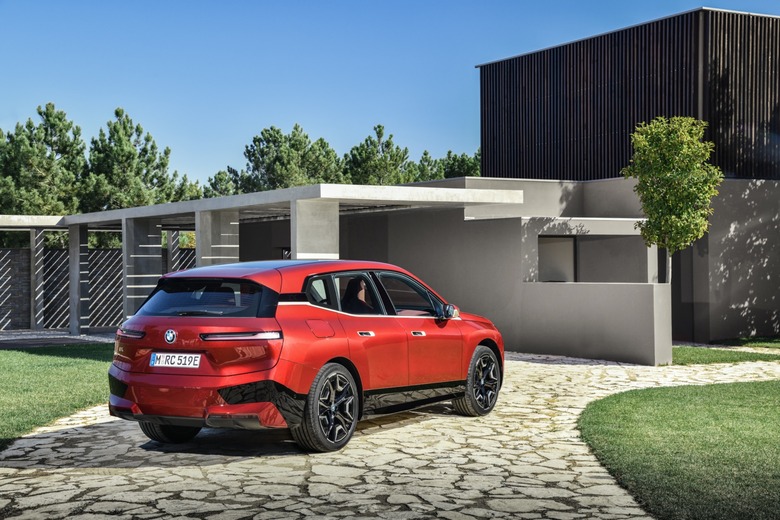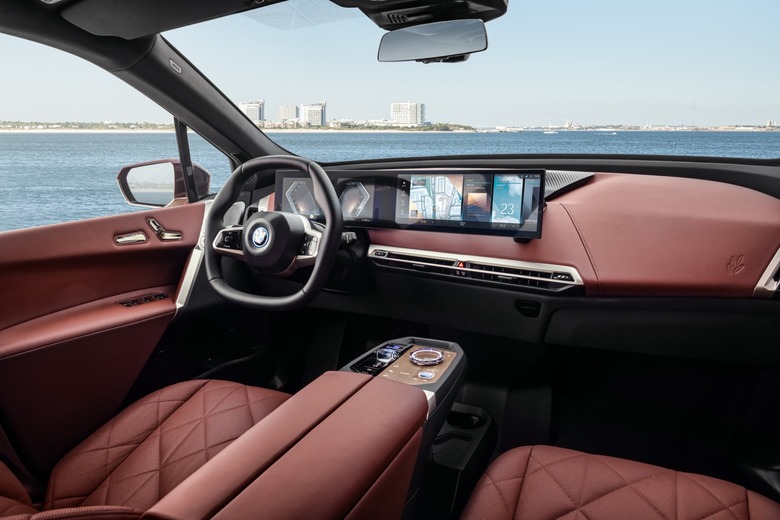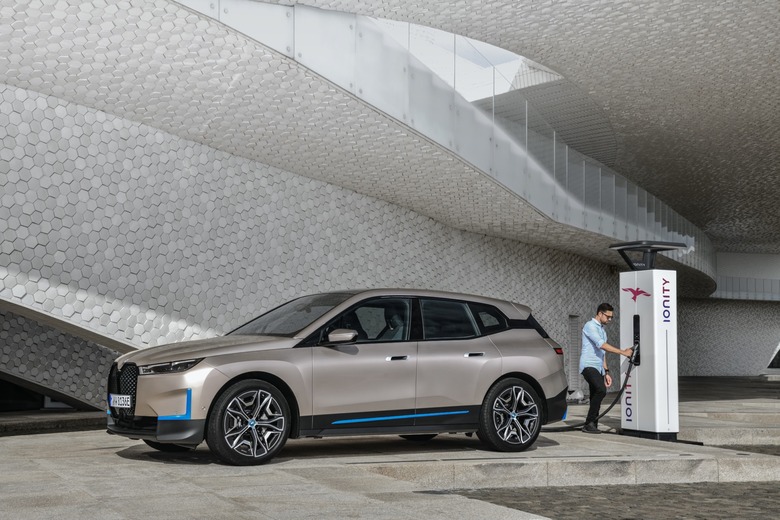BMW Boosts EV Production Goals As iX Tesla-Rival SUV Nears Launch
BMW plans to increase its electric vehicle production, boosting the number of EVs it intends to make between 2021 and 2023 in response to what the automaker sees as a greater shift toward electrification. The news comes not long after BMW revealed the BMW iX, a luxury electric SUV that it intends to be its first to launch in the US.
That won't be until 2022, however, leading to suggestions from some quarters that BMW hasn't taken electrification sufficiently seriously to-date. Currently there's just one pure-electric model in the automaker's US line-up, the BMW i3, alongside plug-in hybrid versions of other sedans and SUVs.

It hasn't stopped BMW from making ambitious predictions, however. The BMW iX will be one of 25 electrified vehicles it offers globally by 2023, it has promised, with five electric models – among them both BMW and MINI branded – expected to be offered by next year. Also on the roadmap is a fully-electric version of the 5 Series, one of BMW's most iconic nameplates.
According to BMW chairman Oliver Zipse, the numbers are only going to increase. He confirmed the automaker is "significantly increasing" the number of EVs it plans to produce between 2021 and 2023, telling German newspaper Augsburger Allgemeine that the company now intends to build a quarter of a million more electric cars than it original planned for that period.

BMW will more than double its share of EVs in sales, Zipse predicts. In 2020, that amounted to around 8-percent, but he expects it to hit around 20-percent come 2023.
The primary challenge, Zipse says, isn't BMW's enthusiasm for electrification or consumer appetite for EVs. Instead, it's the infrastructure for charging that could hamstring the shift from internal combustion. Markets are significantly behind in rolling out the sort of EV charger networks that will be required to cater to automaker sales predictions, Zipse suggests.

BMW, though, won't be taking that on itself, at least from the sound of it. Unlike Tesla, which made its Supercharger network just as much of a product priority as its EVs were, BMW has, like most other automakers, opted to leave infrastructure to private companies and governments. Zipse calls for cross-Europe action to prioritize such charging networks.
The BMW iX uses the automaker's fifth-generation eDrive technology, along with batteries sufficient for around 300 miles of range, it's claimed. With two motors for all-wheel drive, the SUV should have around 500 horsepower on tap and do 0-62 mph in under 5.0 seconds. With DC fast charging support for up to 200 kW, ten minutes plugged into a suitably-potent charger could be enough to add around 75 miles of range.
